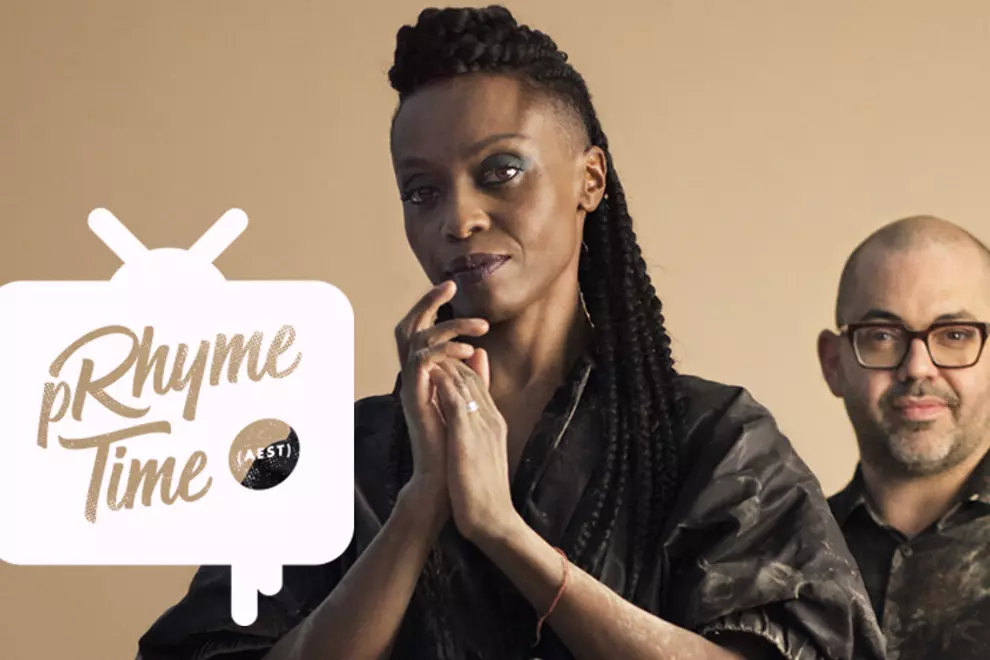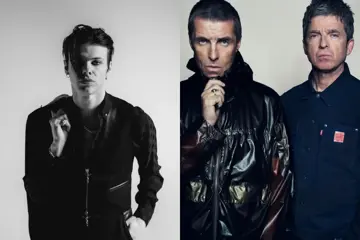With our current short attention span, there are few artists that continue to stand the test of time. Not simply recognised as "classics, pioneers or OG's", I’m referring to artists that have been dominating the scene since you were button mashing on a cassette player as a kid and still create beautifully taste making music. Morcheeba are iconic developers in what we now know to be "trip hop" and after releasing new single Blaze Away (featuring Roots Manuva) I had to reach out to enquire how their journey has lead them to such great heights.
"Skye and I didn’t really have a plan," answers multi-instrumentalist Ross Godfrey. "We just wanted to make a Morcheeba album... Blending organic instruments and voices with programmed beats and synths is what defines our sound but the songs take the lead and the influences are eclectic so they can end up in strange places."
"When making the album, we knew if we stay true to ourselves, then fans of the band would like it."
I find Skye Edwards’ voice so characteristically unique so it’s no surprise they took on the equally distinctive voice of London’s Roots Manuva. Yet, the track itself is so intrinsically complex and the production is nothing short of brilliant — together we’re treated to a soundscape we wish were an outfit in itself! Morcheeba have worked with brilliant contributors in the past and I wanted to know if Edwards was responsible for all the lyric creation.
“Skye did write all the lyrics on this album, apart from the tracks with collaborators. Roots Manuva wrote the rap and group vocal on Blaze Away and Benjamin Biolay wrote all the lyrics on Paris sur Mer… I have always loved Roots Manuva’s voice and his lyrics. We did a festival with him in Moscow, Russia, and after the show we smoked some weed and had a chat. He lives pretty close to me in South London so I invited him round to do a rap on a track I had just recorded with Skye and that’s what’s now called Blaze Away!”
Don't miss a beat with our FREE daily newsletter
The band’s illustrious career has certainly had its highs and lows (like any great band), including the departure of Ross’ brother Paul. I don’t really see the reason in dwelling on the usual ‘what happened?’ questions but instead wanted to ask about identity in a band’s name. Following Paul’s departure Edwards and Ross worked on several different projects so it’s interesting to ponder how much a band's name affects their continued endeavours and what sort of pressures revolve around identity.
"The sound of Morcheeba is just how it comes out when we make music together."
Straight away I become aware that the music means so much more than the name. In hindsight, it always should...
"It’s all very natural and enjoyable. We started the band when I was 18 so I have know little else in my adult life, sometimes the future seemed a bit uncertain but I guess that’s part of the ride.
"Making music is abstract. I just pick up a guitar and start jamming, I find it’s a really cathartic experience. Writing lyrics can be a bit more elusive however. The industry is too busy imploding and trying to evolve to exert any pressure on us and we wouldn’t take any notice anyway, we’ve been around too long.”
I continue to ask about these pressures and just how the industry is “imploding.” Mental health within the music industry has never been so apparent with our gradual acknowledgement and slow (yet sure) address, so it’s important to use this implosion positively before it becomes an explosion.
“Music is the oldest human form of expression, it predates language and painting and is the best way to externalise feeling without having to explain it. Society and dysfunctional families put people under a lot of strain. It can be unbearable. Music really helps and those drawn to making it are often different to most people so we need to be tolerant and understanding. Stigmatising mental illness only makes it worse.”
It’s also important to address however the conversation around artists' mental health issues imposed by us, the consumers. There have recently been a number of musicians come under fire for their political stance on current social topics (eg. Kanye, Killer Mike, DJ Khaled to name a few).
So — without giving a negative perspective oxygen — is it fair that artist’s opinions are critiqued so quickly based on the fact they have platform/following? Free speech is one thing, but endorsing negative movements with no consideration to backlash or its effect on real people is incredibly dangerous.
“I think most modern artists don’t like to court controversy because of the backlash it can create and this in turn has lead to a dumbing down of music in general. It no longer is at the vanguard of social and political change which is a real shame... I wonder where the new Bob Dylan or Public Enemy are? Music should engage and provoke discussion. Love should drown out fear. Always.”
I don’t want to get too heavy on you here. This is really just food for (dare I request critical) thought. So let’s celebrate that love! Trip hop is a genre I was never aware I was following or even recognised as a mainstream genre because I feel it was once influenced by other genres. Now however it has an influence of its own (not dissimilar to hip hop, I’ll point out). That’s certainly something we can thank Morcheeba for having a significant role in.
“Well trip hop became homogenised into all popular music. I think at times the globalisation of popular music has made it bland. The instant availability of all music everywhere has taken away the mystery of it and the thrill of the hunting for it. I used to love ‘diggin’ in the crates’ to find a rare old record but now you can find everything at the click of a button.”
I’ve spoken to a number of artists recently (specifically in hip hop) who are trying to avoid industry labels, such as ‘rapper’ for example. This is because streaming services categorise artists, and therefore playlists, into specific genres. I don’t feel as through Morcheeba, or more over trip hop could be tied into just one genre... and perhaps this is where the label “underground” stems from. 23 years on from Morcheeba’s conception we certainly can’t call them “underground” but I’m not sure trip hop truly identifies their art form either…
“I used to laugh when the big record stores would try to put Morcheeba in their sections, is it rock and pop? Electronic? Chill out? It is happening again in streaming services. Music is abstract, just label it by artist!”
Speaking to such icons I had to ask about some of their biggest hits; some may argue Rome Wasn’t Built In A Day is their best single, where personally I feel Otherwise really stands the test of time. So given that the outfit experiment in so many different influences, I asked if that affects a release and its strategy of connecting with an audience?
“If you start an album or start writing a song with any intention it invariably goes wrong, so it is best to just create what you are feeling at the time and then sift through what you have later. Singles present themselves if they want to. Morcheeba never get much radio play so I prefer to just make a thing of beauty that somebody lying on a sofa will trip along with, or songs that you know are gonna be great to play live.
"The new album has a lot of raw energy and emotion, it pulls in a lot of directions but the centre of gravity is always Skye’s voice over a dope riff.”
Keep an ear to the ground folks. Morcheeba are back and I promise you this album is going to be nothing but heartfelt, soulful fire!
















